With the rapid development of sheet metal processing technology, the processing technology is also changing with each passing day, bringing many revolutionary concepts to sheet metal processing. As a traditional sheet metal cutting equipment, there are mainly:
- – CNC shearing machine
- – punch
- – Flame cutting
- – Plasma cutting
- – High pressure water cutting
These devices occupy a considerable market share in the market. One is that they are well known, and the other is cheap. Although they have obvious disadvantages compared to modern processes such as laser cutting, they also have their own unique advantages.
Because the CNC shearing machine is mainly straight-line cutting, although it can cut plates up to 4 meters in one cut, it can only be used for sheet metal processing that only requires straight-line cutting. It is generally used in industries that only need straight cutting, such as cutting after flattening the plate.
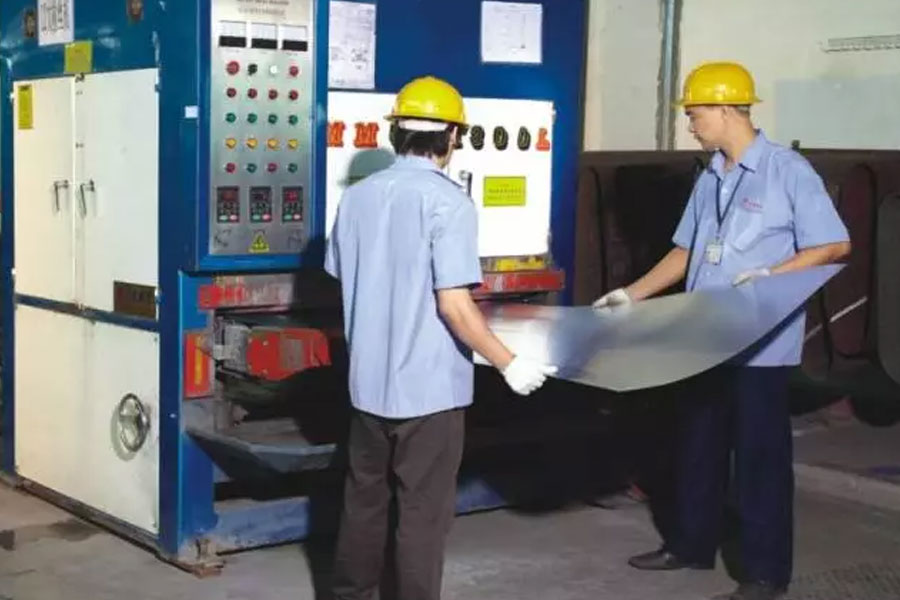
The punching machine has more flexibility in curve processing. A punching machine can have one or more sets of square, round or other special requirements punches, which can process some specific sheet metal workpieces at a time, the most common is the chassis In the cabinet industry, the processing techniques they require are mainly straight lines, square holes, round holes, and the like, with relatively simple and fixed patterns. They are mainly facing carbon steel plates below 2mm, and the format is generally 2.5m×1.25m. Stainless steel with a thickness of more than 1.5mm requires a mold because of its high viscosity. Generally, a punch is not used. Its advantage is the fast processing speed for simple graphics and thin plates. The disadvantage is that the ability to punch thick steel plates is limited. Even if it can be punched, the surface of the workpiece is collapsed, which costs molds, long mold development cycles, high costs, and insufficient flexibility. The cutting and processing of steel plates over 2mm in foreign countries generally uses more modern laser cutting instead of punching machines. One is that the surface quality of thick steel plates is not high when punching and cutting, and the other is that punching thick steel plates requires a larger tonnage punch, which wastes resources. The noise is too large when punching thick steel plates, which is not conducive to environmental protection.
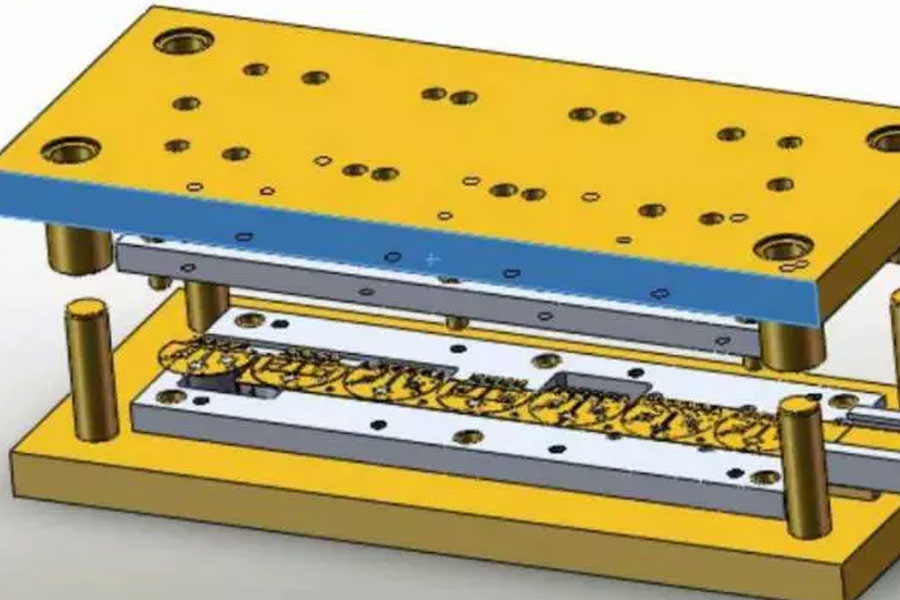
Flame cutting is the original traditional cutting method due to its low investment. In the past, the requirements for processing quality were not high. When the requirements are too high, a machining process can be added to solve the problem, and the market is very large. Now it is mainly used to cut thick steel plates over 40mm. Its disadvantage is that the thermal deformation is too large during cutting, the slit is too wide, and the material is wasted. Moreover, the processing speed is too slow, which is only suitable for rough processing.
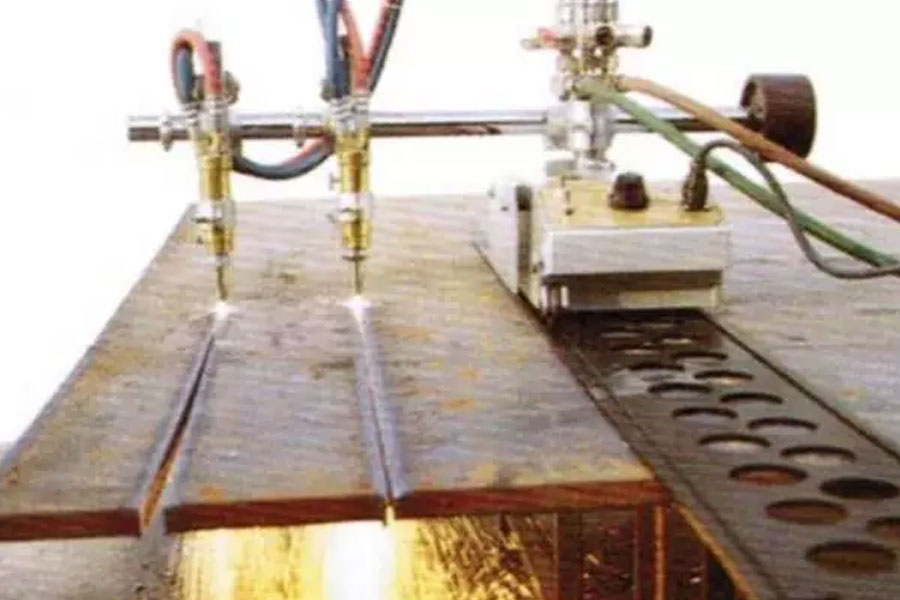
Plasma cutting and fine plasma cutting are similar to flame cutting. The heat-affected zone is too large, but the accuracy is much larger than that of flame cutting. The speed also has an order of magnitude leap, becoming the main force in plate processing. The actual cutting accuracy of the top domestic CNC fine plasma cutting machine has reached the lower limit of laser cutting, reaching a speed of more than 2 meters per minute when cutting 22mm carbon steel plates, and the cutting end surface is smooth and flat, and the slope is the best. Control within 1.5 degrees, the disadvantage is that the thermal deformation is too large when cutting the thin steel plate, the slope is also large, there is nothing to do when the accuracy is high, and the consumables are more expensive.
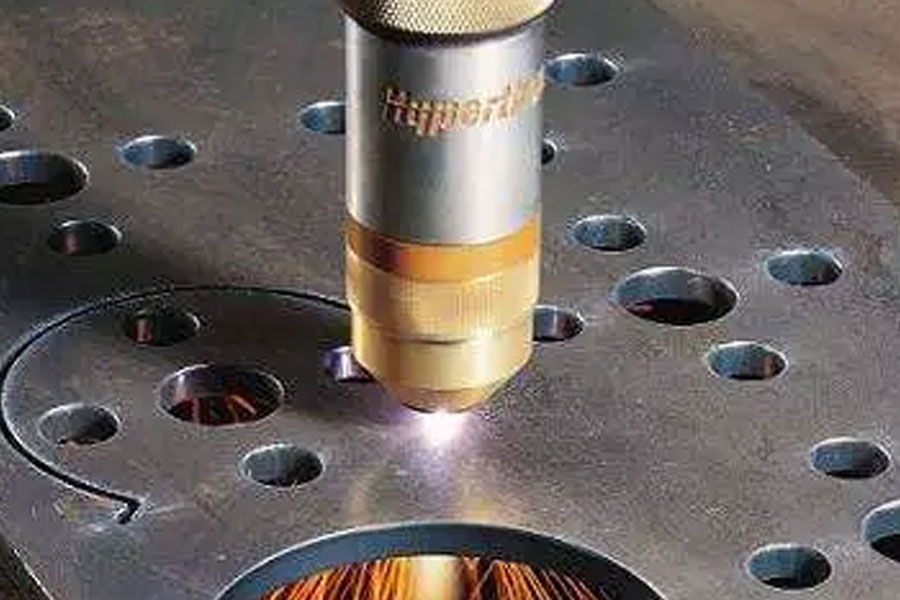
High-pressure water cutting is the use of high-speed water jet doped with emery to cut sheet metal. It has almost no restrictions on the material, and the cutting thickness can almost reach more than 100mm. It is also suitable for materials that are easy to burst when hot cutting is used for ceramics, glass, etc. It can be cut. Copper, aluminum, etc. can be cut by water jets for high-reflective laser materials, but laser cutting has a big obstacle. The disadvantage of water cutting is that the processing speed is too slow, too dirty, not environmentally friendly, and high consumables.
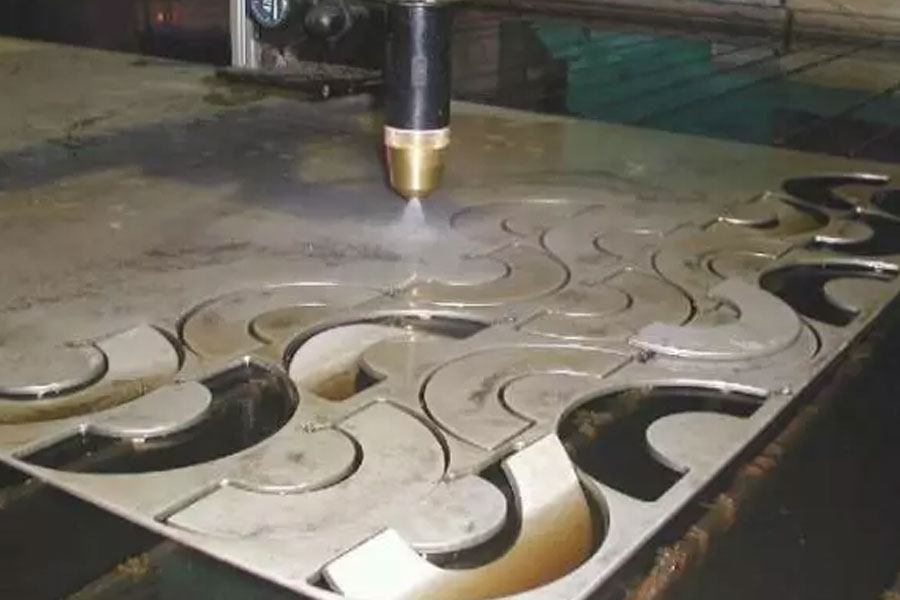
Laser cutting is a technological revolution in sheet metal processing and the “processing center” in sheet metal processing. Laser cutting has a high degree of flexibility, fast cutting speed, high production efficiency, and short product production cycle, which has won a wide range of markets for customers. Laser cutting has no cutting force, no deformation in processing; no tool wear, good material adaptability; no matter simple or complex parts, it can be cut with laser precision and rapid forming at one time; its cutting seam is narrow, cutting quality is good, and the degree of automation is high, and the operation Simple, low labor intensity, no pollution; automatic cutting and nesting can be realized, the material utilization rate is improved, the production cost is low, and the economic benefit is good. The technology has a long effective life. At present, laser cutting is used for most of the 2mm superstructured plates abroad. Many foreign experts agree that the next 30-40 years will be the golden period of laser processing technology development (the direction of sheet metal processing development) .
Cutting accuracy is the first element to judge the quality of a CNC laser cutting machine. Four factors affecting the cutting accuracy of CNC laser cutting machines:
- 1. The size of the laser agglomeration of the laser generator. If the light spot is very small after gathering, the cutting accuracy is very high, and the gap after cutting is also very small. It shows that the precision of the laser cutting machine is very high, and the quality is very high. But the light beam emitted by the laser is cone-shaped, so the slit cut out is also cone-shaped. Under this condition, the greater the thickness of the workpiece, the lower the accuracy, so the larger the slit.
- 2. The accuracy of the workbench. If the accuracy of the table is very high, the accuracy of the cutting will also be improved. Therefore, the accuracy of the workbench is also a very important factor to measure the accuracy of the laser generator.
- 3. The laser beam is condensed into a cone. When cutting, the laser beam is tapered downwards. At this time, if the thickness of the cut workpiece is very large, the cutting accuracy will be reduced, and the cut gap will be very large.
- 4. Different materials to be cut will also affect the accuracy of the laser cutting machine. Under the same circumstances, the precision of cutting stainless steel and aluminum will be very different, the precision of stainless steel cutting will be higher, and the cut surface will be smoother.
Link to this article: The Difference Between Laser Cutting And Traditional Processing Technology
Reprint Statement: If there are no special instructions, all articles on this site are original. Please indicate the source for reprinting:https://www.cncmachiningptj.com/
 Sheet metal, Copper Milling, carbon steel,online laser cutting service, 3D Printing, precision CNC machining services for heavy equipment, construction, agriculture and hydraulic industries. Suitable for plastics and rare alloys machining. It can turn parts up to 15.7 inches in diameter. Processes include swiss machining,broaching, turning, milling, boring and threading. It also provides metal polishing, painting, surface grinding and shaft straightening services. The production range(include aluminum die casting and zinc die casting) is up to 50,000 pieces. Suitable for screw, coupling, bearing, pump, gearbox housing, drum dryer and rotary feed valve applications.PTJ will strategize with you to provide the most cost-effective services to help you reach your target,Welcome to Contact us ( [email protected] ) directly for your new project.
Sheet metal, Copper Milling, carbon steel,online laser cutting service, 3D Printing, precision CNC machining services for heavy equipment, construction, agriculture and hydraulic industries. Suitable for plastics and rare alloys machining. It can turn parts up to 15.7 inches in diameter. Processes include swiss machining,broaching, turning, milling, boring and threading. It also provides metal polishing, painting, surface grinding and shaft straightening services. The production range(include aluminum die casting and zinc die casting) is up to 50,000 pieces. Suitable for screw, coupling, bearing, pump, gearbox housing, drum dryer and rotary feed valve applications.PTJ will strategize with you to provide the most cost-effective services to help you reach your target,Welcome to Contact us ( [email protected] ) directly for your new project.
Link to this article:The Difference Between Laser Cutting And Traditional Processing Technology
Reprint Statement: If there are no special instructions, all articles on this site are original. Please indicate the source for reprinting.:ODM Wiki,thanks!^^